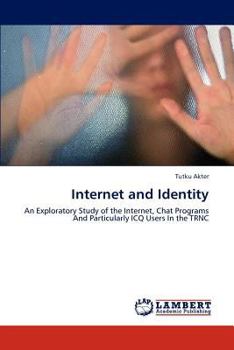Internet and Identity
-----WHETHER VIRTUAL IDENTITIES ARE REFLECTION OF REAL IDENTITIES OR DECEPTION OF THEM ?------"The glass screen of the computer was providing a window into the world where the patrons could explore their ideas and thoughts without fear of physical or mental retribution; true identities were hidden and patrons could participate without being visible member." (Kitchen, 1998:76)------"The notion of community is a "public" concept in that it entails a collectivity of sorts. But virtual community has a private quality about it; it may be who we are as private individuals that constitutes our membership in certain communities, e.g., virtual communities based on political ties or communities of interest based on world view, hobbies, or professional status. Thus, a private character is ascribed to the idea of community as our individuality increasingly defines our choice of community membership, despite the nature of community as a social bond" (http://www.well.com/user/hlr/texts/Vccivil.html). This description may be from another edition of this product.
Format:Paperback
Language:English
ISBN:3848439522
ISBN13:9783848439522
Release Date:March 2012
Publisher:LAP Lambert Academic Publishing
Length:116 Pages
Weight:0.40 lbs.
Dimensions:0.3" x 6.0" x 9.0"
Customer Reviews
2 customer ratings | 2 reviews
There are currently no reviews. Be the first to review this work.





















